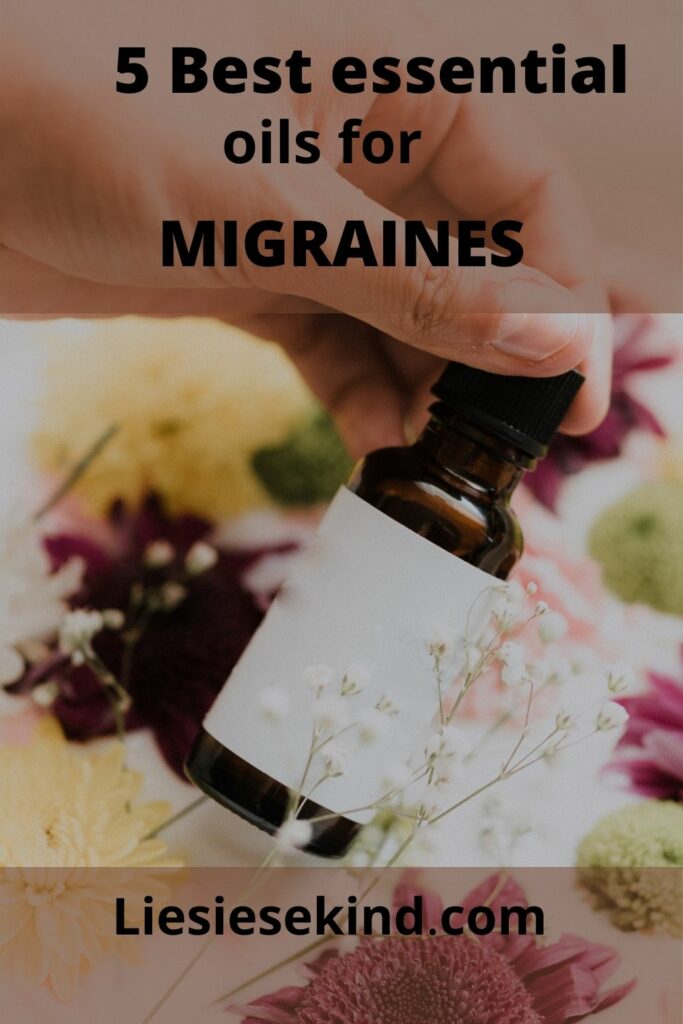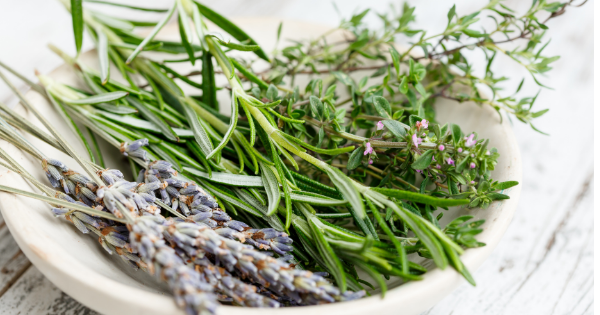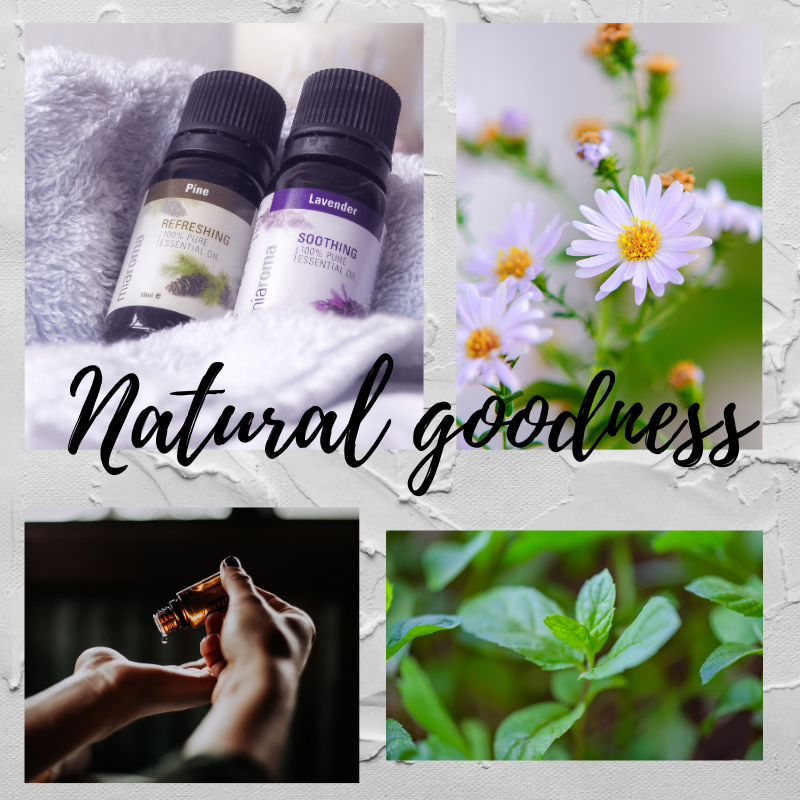Before we start exploring the best essential oils for migraines, let me first tell you a bit more about essential oils.
What are essential oils?
Essential oils are made with the stems, bark, leaves, roots, and other plant-based components and are highly concentrated. You’ve probably heard about the use of essential oils with aromatherapy before. These oils are little gems of nature and contain various health and beauty benefits when used correctly.
Essential oils can be used for treating various ailments. Today, we will be exploring the best essential oils for migraines and headaches. Using natural alternatives such as essential oils, means you won’t be subjected to the long list of side effects usually accompanied with prescription migraine and headache meds.
Some essential oils help with reducing stress levels, subsequently alleviating tension headaches or soothing pain symptoms.
Note: Essential oils are incredibly potent and cannot be used on its own. It must be diluted with a carrier oil like olive oil, jojoba oil, coconut oil, or sweet almond oil.

5 Best essential oils for migraines
Peppermint essential oil
Peppermint essential oil is a popular oil that is widely used for treating migraines and headaches. The oil contains menthol which is useful for easing pain and muscle relaxation. When applied topically after being diluted with a carrier oil, it is believed to help with relieving pain associated with migraine attacks and tension headaches.

Instructions for use:
Dilute the peppermint essential oil with a carrier oil and apply to your temples.
Lavender essential oil
Lavender oil is a popular essential oil that is often used for relaxation and stress relief purposes. Strong evidence also exists that it can be used for treating migraines and headaches. Breathing in the aroma of lavender oil can be useful for acute management of migraine headaches.

Instructions for use:
Apply lavender essential oil after diluting it with a carrier oil to your skin, add it to your bath water, or use it in an oil diffuser to enjoy the effects.
Rosemary essential oil
Rosemary essential oil contains potent analgesic and anti-inflammatory properties. This oil has been utilized in folk remedies for hundreds of years for providing pain relief, boosting circulation, and reducing stress, all elements that can lead to headaches. Rosemary oil can also be used for muscle relaxation and reducing insomnia.

Instructions for use:
Mix the rosemary essential oil with a carrier oil such as coconut oil and gentle massage it into the affected area. It is also believed that breathing in the aroma after topically applying it to the skin or adding a few drops to your bath water, can help with easing pain symptoms.
Eucalyptus essential oil
If your headaches are the result of sinus problems, you will greatly benefit from eucalyptus essential oil. The oil assists with opening up the nasal passages, relieving sinus tension, and clearing the sinuses, which usually causes unpleasant headaches. Mixing eucalyptus oil with ethanol and peppermint oil could also help with having a relaxing effect on your mind and muscles, subsequently soothing headaches.

Instructions for use:
Add a drop of eucalyptus essential oil to coconut oil and apply it to your chest to help clearing your sinuses, or breathe in the vapor from adding a couple of drops to hot water.
Chamomile essential oil
Chamomile essential oil is known for soothing muscles, relaxation, and treating insomnia and anxiety which are often the root cause of headaches. Pregnant women must steer clear from using chamomile essential oil because it could result in miscarriage.

Instructions for use:
Dilute chamomile essential oil with a carrier oil to breathe it in through steaming or add it to your bath water.
Possible risks and complications
- Using essential oils are typically viewed as safe, and many of them have minor side effects compared to standard headache and migraine meds, including prescription and over-the-counter drugs.
- The most substantial risk linked with using essential oils, is the risk of irritation or allergic reaction. Applying these oils topically, could lead to skin redness, a stinging feeling, or rash.
- Always dilute essential oils with a carrier oil prior to applying it to your skin, particularly peppermint and eucalyptus oils which are incredibly potent.
- To avoid skin irritation, first do a patch test by applying a few drops of the diluted essential oil to a tiny area on your skin. If you don’t have any reaction to the oil within 24 or 48 hours, it is safe to assume that you are not allergic to it.
- Very few essential oils are suitable to use on infants younger than one year, breastfeeding, or pregnant women. Rosemary and lavender oils can be especially dangerous.
- If you have pre-existing health issues like heart disease or asthma, essential oils could lead to complications. Always consult with a medical practitioner prior to using essential oils that might aggravate such health problems.
- Keep in mind that essential oils are not regulated by the FDA for quality, safety, or purity, therefore you should always buy from reputable sources that sell only 100% pure essential oils.
Conclusion
Pure essential oils have vast medicinal and beauty benefits if used correctly. These five best essential oils for migraines and headaches can be incredibly useful for relieving stress and pain symptoms. You only need a few drops of essential oils (diluted with a carrier oil) to aid such symptoms.
If the migraine attacks and headaches persist and start to have a negative impact on your overall quality of life, it is best to make an appointment with your doctor to determine the cause. For regular or severe migraines and headaches, essential oils might work best when used as a supplementary treatment with prescription medications.





Be the first to reply